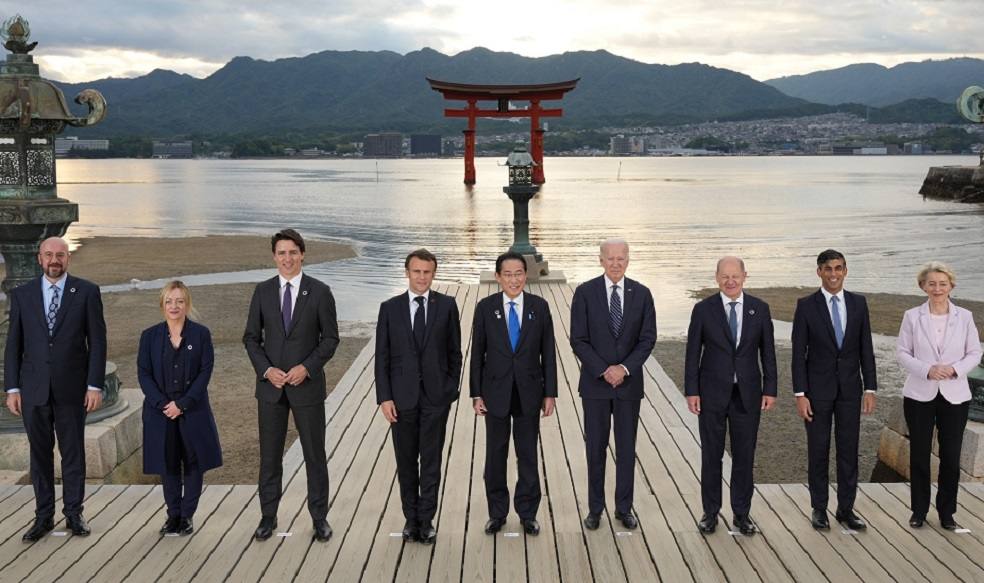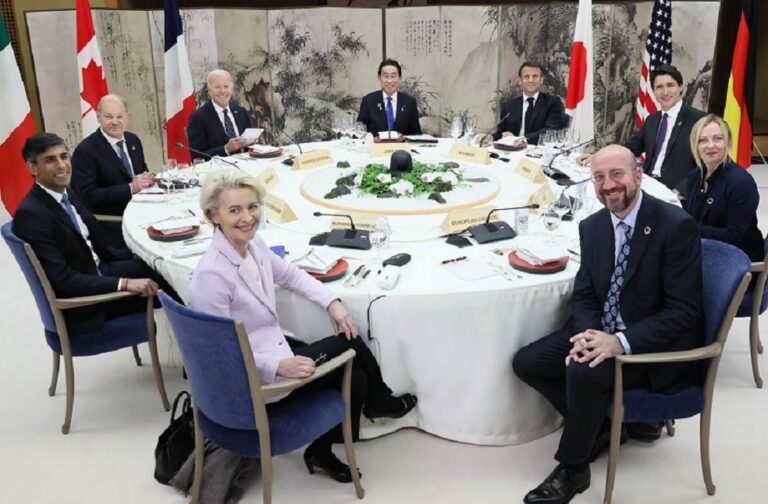Japan: The Group of Seven has called for “constructive” ties with China, emphasising that their intention is not to impede China’s progress, even while taking aim at Beijing’s rights record and territorial claims.
In their communiqué, the G7 leaders struck a balance between seeking cooperation in areas like climate change and pushing back against Beijing’s increasingly assertive posture, which has disrupted long-standing perceptions of global power dynamics.
The leaders of the club of wealthy democracies noted that they did not wish to decouple from China but recognised that economic resilience required “de-risking and diversifying.”
“Our policy approaches are not designed to harm China, nor do we seek to thwart China’s economic progress and development. A growing China that plays by international rules would be of global interest,” the G7 leaders remarked.

But the G7, consisting of Canada, France, Germany, Italy, Japan, the United Kingdom, and the United States, said it would respond to challenges posed by China’s “non-market policies and practices,” counter “malign practices,” and “foster resilience to economic coercion.”
The G7 also expressed concerns about Beijing’s claims in the East and South China Seas, as well as its crackdowns on freedoms in Hong Kong, Tibet, and Xinjiang.
The leaders of the G7 also called on China to press Russia to end its war in Ukraine and for the peaceful resolution of tensions over Taiwan, which Beijing has threatened to reunify with the Chinese mainland by force if necessary.
In the communiqué, the G7 leaders further stated that they would launch a “Coordination Platform on Economic Coercion” to respond to economic coercion.
“The initiative would increase the G7’s collective assessment, preparedness, deterrence, and response to economic coercion and further promote cooperation with partners beyond the G7,” the statement added.



